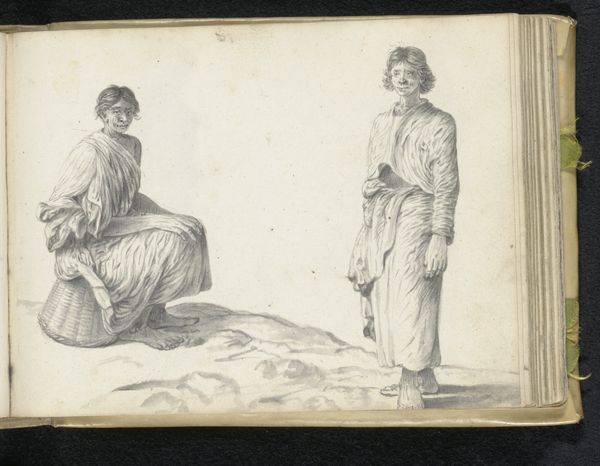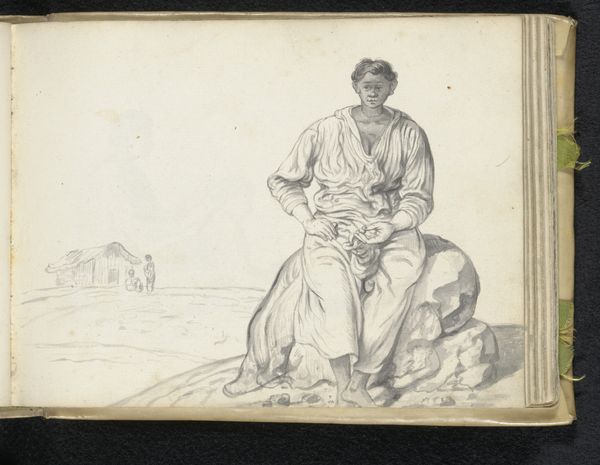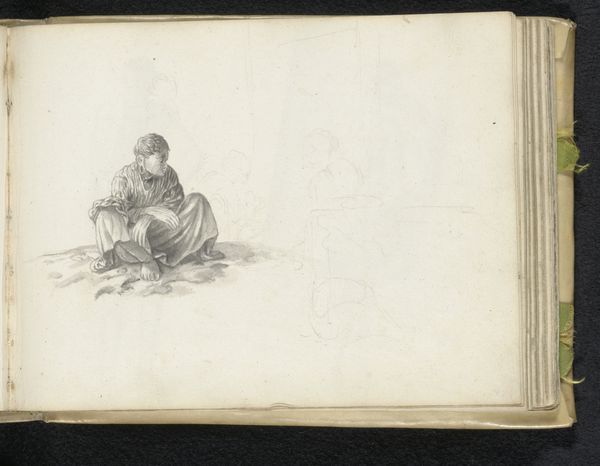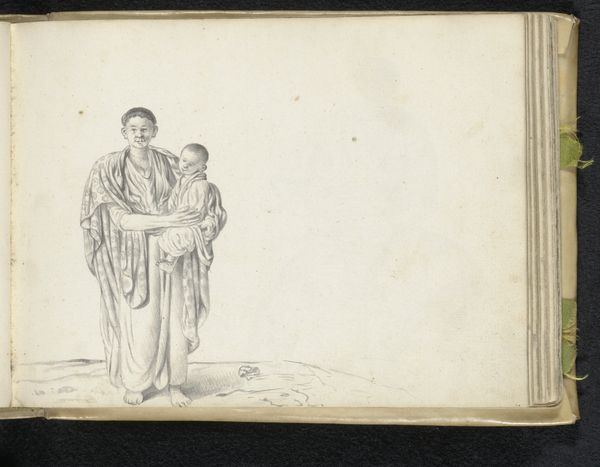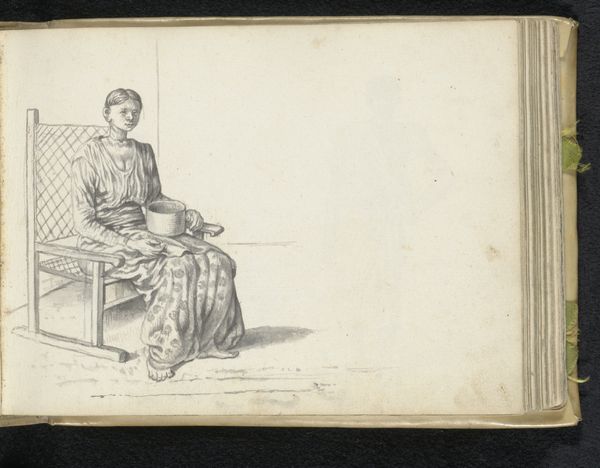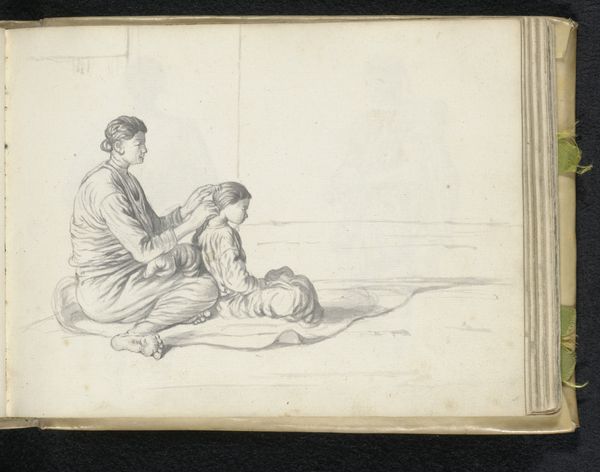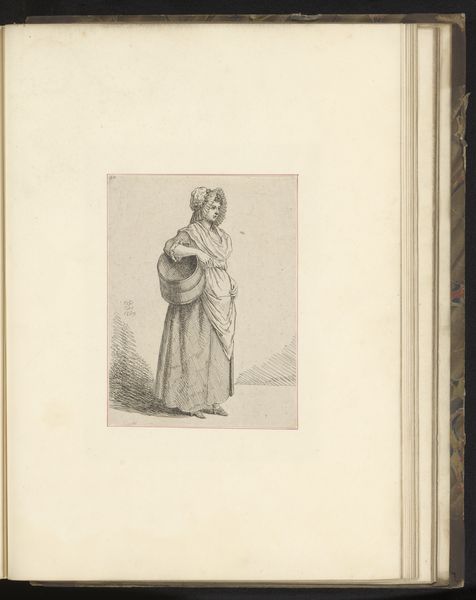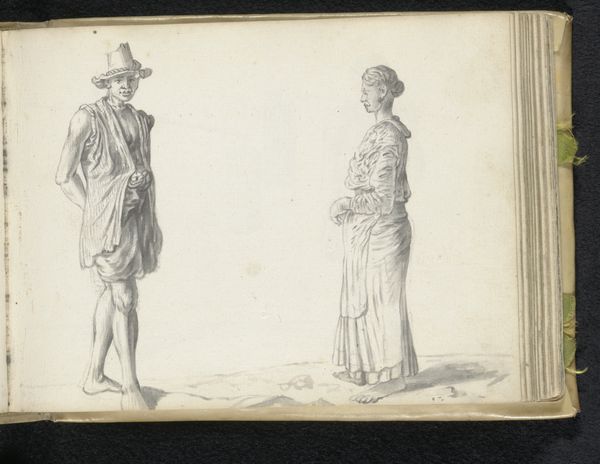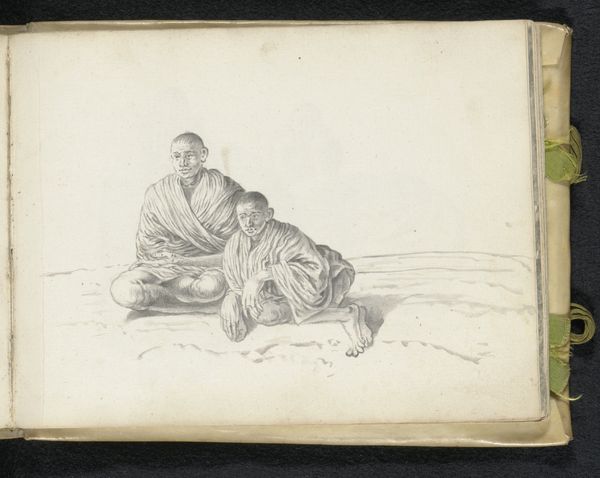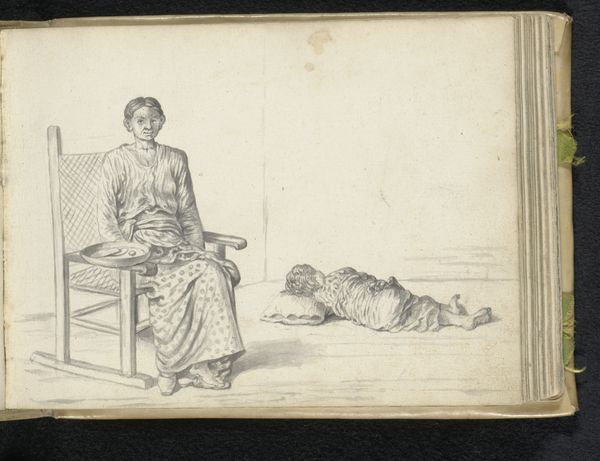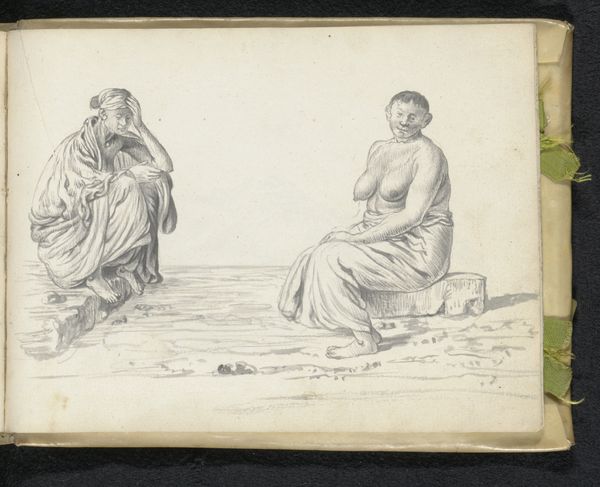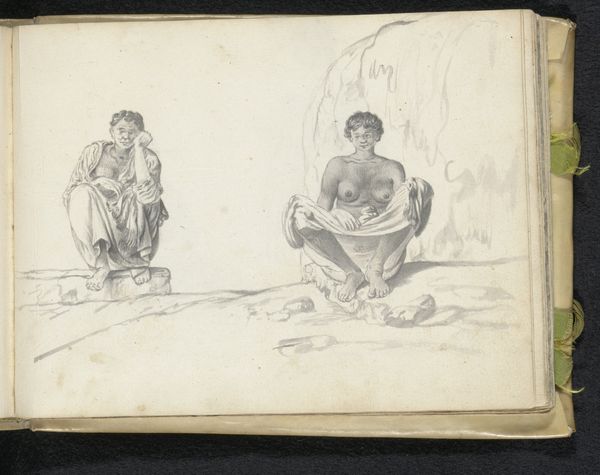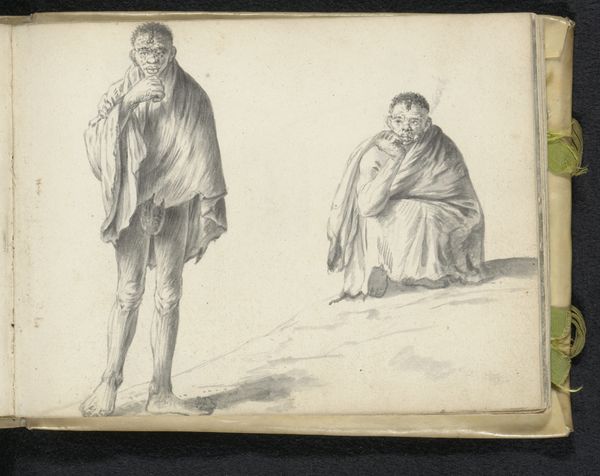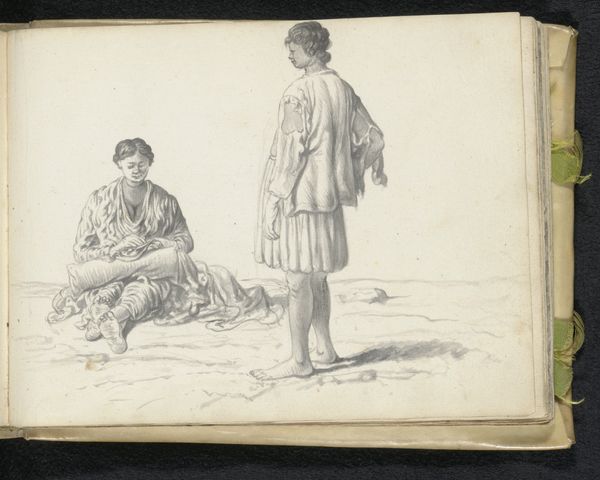
drawing, paper, pencil
#
portrait
#
drawing
#
aged paper
#
toned paper
#
light pencil work
#
quirky sketch
#
dutch-golden-age
#
sketch book
#
figuration
#
paper
#
personal sketchbook
#
coloured pencil
#
pencil
#
line
#
sketchbook drawing
#
genre-painting
#
storyboard and sketchbook work
#
sketchbook art
#
realism
Dimensions: height 148 mm, width 196 mm
Copyright: Rijks Museum: Open Domain
Editor: This is Esaias Boursse’s “Woman sitting on a bench and sketch of a sitting man,” created in 1662 using pencil on paper. It feels like a glimpse into a private moment, maybe a quick study from the artist's sketchbook. What do you see in this piece, beyond the simple depiction of figures? Curator: Beyond the realism of the scene, notice the interplay of light and shadow, which gives the woman a tangible presence, and the way the artist captured the figures’ expressions: that faint sadness around the mouth of the woman and that stooped gaze of the man. It subtly mirrors a shared psychological space. What feelings arise for you? Editor: I guess I feel a sense of loneliness. Maybe the contrast in how defined they are – the woman being very clear and the man quite faint – speaks to different kinds of isolation? Curator: Precisely! Now consider this within the context of the Dutch Golden Age, where societal values placed emphasis on trade and family. Are these individuals part of the Dutch prosperity, or could they represent a sector excluded from it? Is there, maybe, a subtle cultural critique here? Editor: That's something I hadn't considered – a commentary on social inequality hidden within an everyday scene. I was just taking it at face value! Curator: The visual language of art often serves to reflect, reinforce, or even challenge those existing power structures. And sometimes, it just offers a quiet, melancholy gaze at those who are on the margins of things. It speaks volumes about the era and the artist's perspective, don't you agree? Editor: Absolutely. I'll definitely be looking more closely at those symbolic possibilities in the future. Thanks for illuminating that for me!
Comments
No comments
Be the first to comment and join the conversation on the ultimate creative platform.
